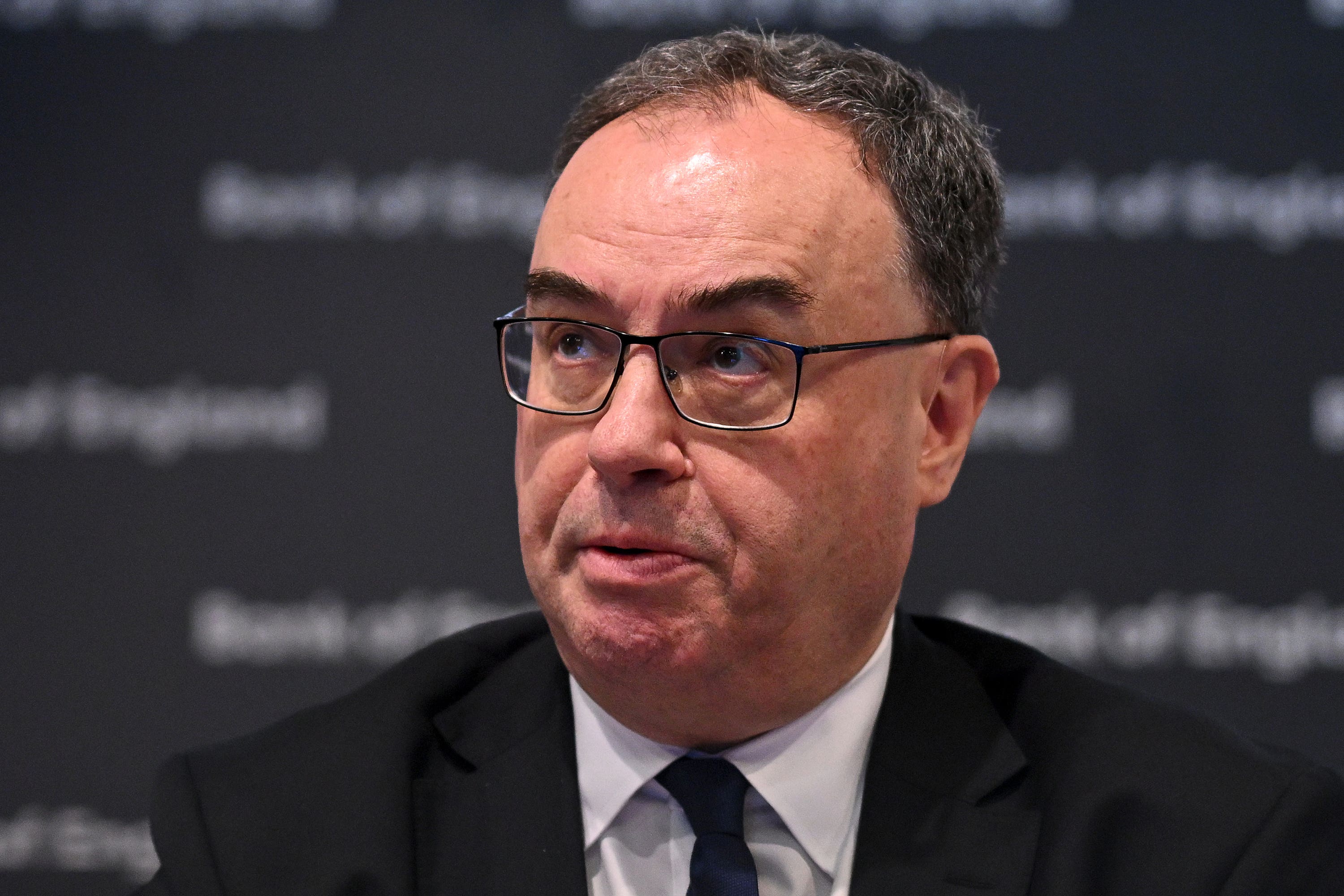UK recession ‘weak’ and rates may be cut before inflation hits 2% – Bailey
The Bank of England Governor said the recession the UK entered in the last two quarters of 2023 was ‘the weakest by a long way’ since the 1970s.

Your support helps us to tell the story
From reproductive rights to climate change to Big Tech, The Independent is on the ground when the story is developing. Whether it's investigating the financials of Elon Musk's pro-Trump PAC or producing our latest documentary, 'The A Word', which shines a light on the American women fighting for reproductive rights, we know how important it is to parse out the facts from the messaging.
At such a critical moment in US history, we need reporters on the ground. Your donation allows us to keep sending journalists to speak to both sides of the story.
The Independent is trusted by Americans across the entire political spectrum. And unlike many other quality news outlets, we choose not to lock Americans out of our reporting and analysis with paywalls. We believe quality journalism should be available to everyone, paid for by those who can afford it.
Your support makes all the difference.Bank of England Governor Andrew Bailey has said that the UK’s recession is “very weak”, but signalled that inflation does not need to reach 2% before the Bank starts cutting interest rates.
Mr Bailey said that compared to recessions dating back to the 1970s, the 0.5% cumulative reduction in gross domestic product (GDP) in the third and fourth quarter was “the weakest by a long way”.
“We have a very precise definition of a recession in this country as two successive quarters of negative GDP growth,” he told the Treasury Select Committee.
“The two successive quarters… last year, I think, cumulatively add up to minus 0.5% on GDP.
“If you look at recessions going back to the 1970s, this is the weakest by a long way because the range, I think… for those two quarters for all the previous recessions was something like 2.5% to 22% in terms of negative growth, so minus 0.5% is a very weak recession.”
Fellow Bank of England interest-rate setter Dr Ben Broadbent pointed out that other countries, including the US, define recessions in different ways.
Mr Bailey also said that the Bank’s Monetary Policy Committee (MPC) could start cutting interest rates before inflation reaches the Bank’s target of 2%. He said that the target is likely to be met sometime this spring.
He said that he wanted to see sustained progress on inflation in the services sector, pay increases and the labour market.
“We’ve seen, I think, encouraging signs on them. So, services inflation is still above 6%, there are some signs of it coming down now,” Mr Bailey said.
Despite the disinflation at play, we’re still seeing consumption very weak and very different from some of the other advanced economies where there has been a bounce back from the pre-pandemic levels
“I think some signs that pay is now adjusting down towards the lower headline inflation, which is what I’d expect to see.
“The quantity side of the labour market remains tight, there’s no question about that. But it’s the progress of those three things.
“We don’t need inflation to come back to target before we cut interest rates, I must be very clear on that, that’s not necessary.
“We’ll be looking for sustained progress on those things to reach that judgment about how long this period of restrictive policy needs to be.”
Swati Dhingra, a fellow member of the MPC, said that if the Bank keeps interest rates high “for longer” that could weigh on some parts of the economy.
“Despite the disinflation at play, and despite the fact that there has been some real wage recovery, we’re still seeing consumption very weak and very different from some of the other advanced economies where there has been a bounce back from the pre-pandemic levels,” she said.
“Here, we aren’t seeing that, even after January’s retail sales, unfortunately, (retail sales are) about 2.1% lower.
“I think that suggests to me that the downside risks at this point are substantial and, therefore, if we keep monetary policy tight for longer, that would weigh even further on that sort of real relativity.”